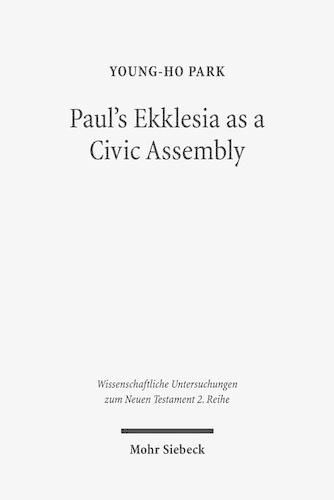Readings Newsletter
Become a Readings Member to make your shopping experience even easier.
Sign in or sign up for free!
You’re not far away from qualifying for FREE standard shipping within Australia
You’ve qualified for FREE standard shipping within Australia
The cart is loading…






The Greek word ekklesia originally meant the civic assembly of all citizens in the classical Greek democracy. Young-Ho Park argues that the strong civic connotation of this term continued to operate in the political culture of the Hellenistic and Roman periods. The use of ekklesia in second-temple Judaism should also be understood as part of this political culture in which the Jews were substantially incorporated. By adopting this civic term in his letters to his local Gentile congregations, Paul effectively created a symbolic universe in which the Christ worshippers saw themselves as the honorable citizens who represented the city before God. This civic nature of the community was also used as Paul’s solution to the Corinthian problem, especially with regard to the Lord’s Supper, and provided an organizational principle for the local communities.
$9.00 standard shipping within Australia
FREE standard shipping within Australia for orders over $100.00
Express & International shipping calculated at checkout
The Greek word ekklesia originally meant the civic assembly of all citizens in the classical Greek democracy. Young-Ho Park argues that the strong civic connotation of this term continued to operate in the political culture of the Hellenistic and Roman periods. The use of ekklesia in second-temple Judaism should also be understood as part of this political culture in which the Jews were substantially incorporated. By adopting this civic term in his letters to his local Gentile congregations, Paul effectively created a symbolic universe in which the Christ worshippers saw themselves as the honorable citizens who represented the city before God. This civic nature of the community was also used as Paul’s solution to the Corinthian problem, especially with regard to the Lord’s Supper, and provided an organizational principle for the local communities.